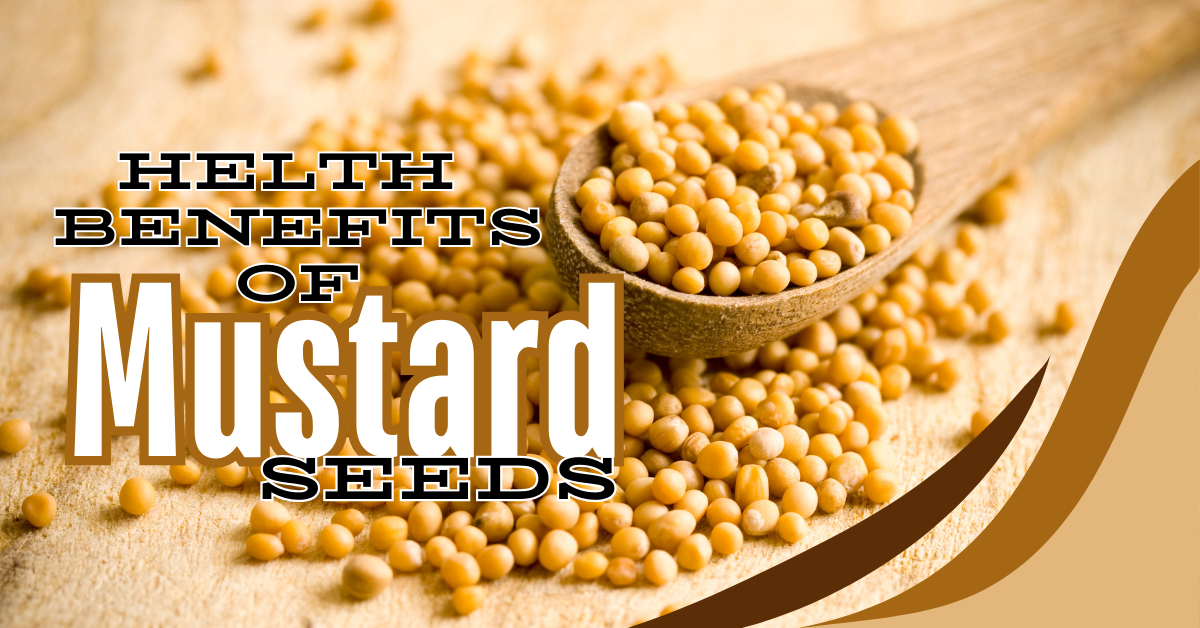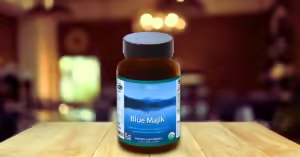Introduction: Why Mustard Seeds Are More Powerful Than You Think
Mustard seeds, tiny as they are, pack a mighty punch when it comes to flavor, nutrition, and health benefits. These small seeds, commonly found in yellow, brown, and black varieties, are a staple ingredient in cuisines around the world. However, they are more than just a flavorful spice. Mustard seeds have been prized for their medicinal properties for thousands of years and continue to be an important component of traditional medicine, particularly in Ayurveda.
From enhancing the taste of dishes to improving digestion and providing essential nutrients, they offer a wide range of benefits that make them more than just a pantry item. In this blog, we will explore the history, health benefits, culinary uses, and even how to grow mustard seeds at home.
The History of Mustard Seeds: From Ancient Times to Modern Kitchens
The history of mustard seeds dates back thousands of years, with references to the seed found in ancient civilizations such as India, Egypt, and Greece. These seeds were not only valued as a spice but also for their medicinal properties. The ancient Greeks used these seeds as a remedy for a variety of ailments, while the Egyptians used them to preserve food.
Religious and Cultural Significance
In addition to its culinary and medicinal uses, they also have religious significance. The Bible famously mentions the mustard seed in the Parable of the Mustard Seed, symbolizing faith and growth. In many Eastern cultures, mustard seeds were seen as a symbol of strength and resilience.
As trade routes expanded, mustard seeds found their way into European cuisine, becoming a key ingredient in the development of the mustard condiment we know today. By the 18th century, mustard had become a common household spice throughout Europe, and its popularity only grew as it made its way to America.
Health Benefits of Mustard Seeds You Need to Know
They are not just flavorful—they also boast a variety of health benefits that make them a valuable addition to any diet. Whether you’re looking to improve digestion, boost immunity, or get essential nutrients, mustard seeds have something to offer.
1. Rich in Antioxidants
These seeds are loaded with antioxidants, which help to neutralize free radicals in the body. These compounds play a key role in protecting cells from oxidative damage, which can lead to chronic diseases such as cancer and heart disease.
2. Supports Digestion
One of the key benefits of mustard seeds is their ability to aid digestion. The seeds contain dietary fiber that promotes healthy digestion by supporting the movement of food through the digestive tract. Additionally, these seeds can stimulate the production of gastric juices, helping to break down food more effectively.
3. Anti-Inflammatory Properties
The anti-inflammatory properties of mustard seeds can help reduce pain and swelling in the body. They have been used in traditional medicine to alleviate conditions such as arthritis and muscle pain.
4. Nutrient Powerhouse
They are packed with essential nutrients like calcium, magnesium, potassium, and zinc. These nutrients are important for maintaining healthy bones, regulating blood pressure, and supporting overall bodily functions.
5. Boosts Immunity
These seeds are also known to enhance the immune system. They contain compounds such as selenium and omega-3 fatty acids, both of which help the body fend off infections and maintain a strong immune response.
6. Good for Heart Health
The presence of omega-3 fatty acids and magnesium makes mustard seeds beneficial for heart health. These compounds help reduce the risk of heart disease by lowering cholesterol levels and promoting healthy blood circulation.
7. Promotes Skin and Hair Health
These seeds are often used in beauty treatments due to their ability to promote healthy skin and hair. The seeds are rich in vitamins and minerals that nourish the skin, and mustard oil, derived from the seeds, is a popular remedy for strengthening hair and reducing hair loss.
Different Varieties of Mustard Seeds and Their Uses
There are several types of mustard seeds, each with its own flavor profile and culinary uses. The three main varieties are yellow mustard seeds, brown mustard seeds, and black mustard seeds.
Yellow Mustard -Seeds
- These are the mildest of the mustard seed varieties and are often used in American mustard and salad dressings.
- Yellow mustard seeds have a slightly tangy flavor and are used in pickling and sauces.
Brown Mustard -Seeds
- Brown mustard seeds are spicier than yellow mustard seeds and are commonly used in Indian cuisine. They are often added to curries and spice blends to give a strong, pungent flavor.
- They are also a key ingredient in making whole-grain mustard.
Black Mustard -Seeds
- Black mustard seeds are the most pungent and are frequently used in South Asian and Middle Eastern cooking. They add a spicy kick to dishes like dal, chutneys, and stir-fries.
- Black mustard seeds are also used in the production of mustard oil, which is a staple in many traditional Indian recipes.
How to Use Mustard Seeds in Cooking
They can be used in a variety of ways in the kitchen, making them an incredibly versatile spice. Here are some common methods for using these seeds in cooking:
1. Toasting the Seeds
To bring out the full flavor of mustard seeds, they can be toasted in a dry pan before adding them to a dish. Toasting enhances the nutty and spicy aroma of the seeds, making them a great addition to curries, stews, and soups.
2. Grinding into Mustard Powder
Mustard seeds can be ground into mustard powder, which is used in spice rubs, sauces, and salad dressings. Mustard powder is often combined with vinegar and water to create prepared mustard.
3. Adding to Pickles and Preserves
The pungent flavor of mustard seeds makes them an excellent ingredient for pickling. They can be added whole or ground into pickling brines to preserve vegetables like cucumbers, beets, and carrots.
4. Tempering in Oil
In Indian cooking, They are often added to hot oil until they pop, a technique called tempering. This releases their flavor and adds a distinct, earthy taste to dishes like lentils, curries, and vegetable stir-fries.
In Traditional Medicine and Ayurveda
For centuries, they have played a crucial role in traditional medicine and Ayurveda, particularly for their warming properties and ability to balance the body’s energies.
Ayurvedic Uses
In Ayurveda, they are considered to have a heating effect, which helps balance Kapha and Vata doshas. They are used to stimulate appetite, clear congestion, and promote circulation.
Natural Remedy for Colds and Flu
They are also known for their ability to alleviate cold and flu symptoms. A traditional remedy involves using mustard seed in a hot bath or as a poultice to ease respiratory congestion.
Muscle Pain Relief
In traditional medicine, they are often ground into a paste and applied to the skin to relieve muscle pain and joint inflammation.
How to Grow Mustard Seeds at Home
Growing these seeds at home is relatively easy, and it can be a rewarding way to enjoy fresh mustard leaves or seeds. Here’s a quick guide on how to grow your own mustard plant:
Step 1: Planting
- They can be planted directly into the soil in spring or fall, depending on your climate. They require a sunny spot and well-drained soil.
Step 2: Watering and Care
- Mustard plants need regular watering but be careful not to overwater. Keep the soil moist but not soggy. The seeds will typically sprout within 4-7 days.
Step 3: Harvesting
- Mustard leaves can be harvested when they are young and tender, while the seeds will take 2-3 months to fully mature. Once the seed pods turn brown and dry, they can be harvested and used for cooking or planting.
Mustard Seeds vs. Mustard Powder: Which Should You Use?
While both mustard seeds and mustard powder have their place in the kitchen, knowing when to use each can enhance your cooking.
Mustard -Seeds
- Best used for tempering or adding texture to dishes. They provide a burst of flavor when added to oils and sauces.
Mustard -Powder
- Ideal for dry rubs, salad dressings, and sauces. Mustard powder has a smoother, more refined flavor than whole mustard seeds.
Both forms of mustard are versatile and add depth to a variety of dishes, but understanding their different uses will help you maximize their flavor potential.
Wondering about seed shelf life? Don’t miss our guide on Do Chia Seeds Go Bad? 7 Things You Need to Know About Shelf Life and Storage to keep your pantry fresh!
Conclusion: The Mighty Mustard Seed’s Impact on Health and Cuisine
From its ancient origins to its modern-day uses in cooking and medicine, the humble mustard seed is a true powerhouse. Rich in nutrients and health-promoting properties, mustard seeds have played a vital role in both cuisine and traditional medicine for centuries. Whether you’re looking to enhance the flavor of your meals or improve your health, they are a versatile and valuable addition to any diet.
With their spicy kick and numerous health benefits, these seeds truly are a small but mighty ingredient that can have a significant impact on your overall well-being.
FAQs About Mustard Seeds
- What are the health benefits of mustard seeds?
- They are rich in antioxidants, promote digestion, reduce inflammation, and support heart health.
- What are the different types of mustard seeds?
- The three main varieties are yellow, brown, and black mustard seeds, each with different flavors and uses.
- Can mustard seeds help with digestion?
- Yes, these seeds contain fiber and compounds that stimulate digestion and help break down food more effectively.
- How do I use mustard seeds in cooking?
- They can be toasted, tempered in oil, ground into powder, or used in pickling brines.
- What is the difference between mustard seeds and mustard powder?
- They are whole and offer a more textured flavor, while mustard powder is ground and often used in sauces and dressings.
- How long do mustard seeds take to grow?
- They typically take 2-3 months to mature, with leaves being harvestable earlier.
- Are mustard seeds good for heart health?
- Yes, these seeds contain omega-3 fatty acids and magnesium, which are beneficial for heart health.
- What are some traditional medicinal uses of mustard seeds?
- They are used to relieve muscle pain, improve circulation, and alleviate cold symptoms in traditional medicine.
- Can I grow mustard seeds at home?
- Yes, they are easy to grow and can be harvested for their leaves or seeds.
- Which variety of mustard seed is the spiciest?
- Black seeds are the spiciest, followed by brown and then yellow seeds.

Joseph Bush is a seasoned writer and researcher with over 7 years of experience covering a wide range of general topics, from lifestyle and technology to business and current events. He is dedicated to producing fact-checked, reader-friendly content that informs, engages, and empowers readers.
Throughout his career, Joseph has followed strict editorial guidelines, relied on reputable sources, and ensured every article meets the highest standards of accuracy and clarity. His expertise spans multiple fields, allowing him to explain complex topics in a way that’s easy to understand.
Passionate about continuous learning, Joseph stays updated on industry trends and best practices to deliver trustworthy, well-rounded insights. Readers can rely on his work for its credibility, depth, and real-world relevance.




